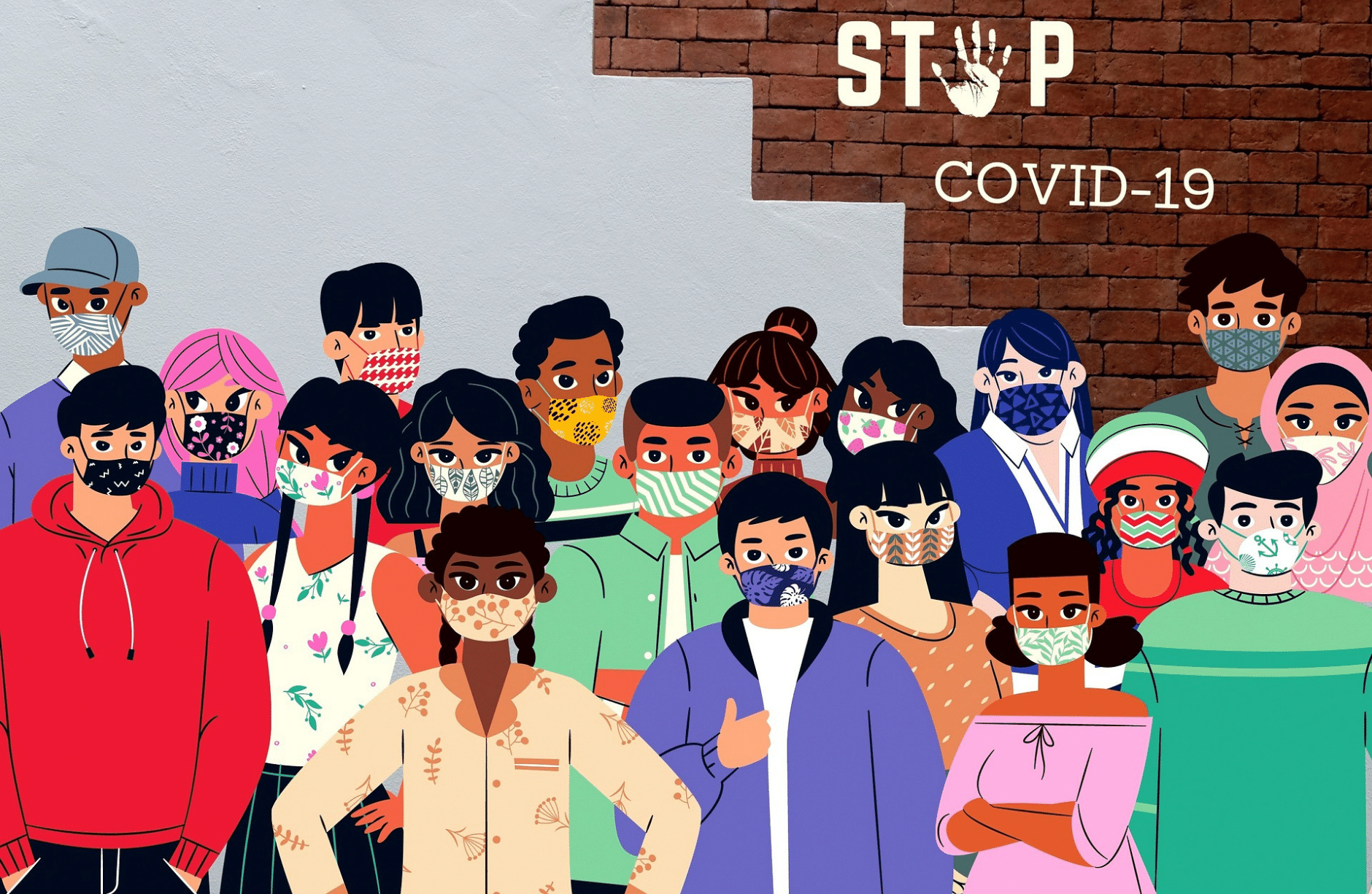How Transforming COVID-19 Masks Into Fashion Statements Saves Lives

- Governments and health bodies may be taking the wrong approach when it comes to encouraging mask-wearing
- Wearing a mask is sometimes seen as a battle between uniformity and self-expression
- Encouraging and allowing customisation can significantly improve mask-wearing
Many people would happily wear a mask to a Halloween party. But doing so to protect themselves and others from a pandemic that has ravaged across 200 countries, amassing a death toll of six million in the process, is beyond the pale, new research from Vienna University of Economics and Business (WU) suggests.
In the case of those with asthma or other respiratory conditions, it’s plain that wearing a face covering in any circumstance is undesirable. But not every British pandemic-protestor, French “anti-masque” and German “Queerdenker” falls under this category.
It’s all about the battle between uniformity and self-expression, say Professors Dr. Johanna Palcu and Martin Schreier from WU, and Chris Janiszewski from University of Florida.
We live in an age where the formal suit and tie is being thrust to the outskirts of office-wear culture; an age when ugly trainers prowl the streets. People crave to express their uniqueness in the clothes they wear, and the COVID-19 mask doesn’t fit with this image.
In fact, the professors suggest, many people feel psychologically stifled while wearing them. The solution they propose: let’s give face masks something to say.
From May through to December 2020, Dr. Palcu and her colleagues conducted three studies involving more than 2,000 volunteers from Austria and the UK. Some participants were allowed to customise their masks with stickers and pens, while others were given the plain, surgical-style variety which can be bought at most supermarkets and pharmacies.
They found the former group were far more likely to use their protective face covering regularly than the latter.
“Participating in the design or construction of a product increases the perceived value of the product,” says Dr. Palcu.
In essence, whack a unicorn sticker on your mask, scrawl the name of your favourite punk rock band just below, and you’re more likely to want to use it because you put effort and time into making it look good.
But surely a good stern talking-to is all the public needs to appreciate the necessity of masks?
Unfortunately, Palcu explains, public health messages that advocate mask-wearing and hand-sanitising as socially responsible behaviour, or focus on the risks of contracting COVID-19, have resulted in a less than 1% rise in pandemic-fighting behaviours among the general public in the US.
It may seem a forgone conclusion, but since wearing masks is one of the most effective and least costly strategies for fighting the spread of COVID-19, alternative strategies need to be implemented to encourage their use, particularly now that social distancing restrictions are being lifted in many countries.
“From a self-expression perspective, a protective face mask might be seen as inhibiting one’s freedom of speech, in a literal sense (it covers one’s mouth),” Dr. Palcu says.
“As noted by the Roman philosopher Seneca: Speech is the mirror of the mind (Imago Animi Sermo Est); it follows that a protective face mask might not only be seen as a means of protection but, also, as a threat to one’s personal freedom. At the extreme, this can result in psychological reactance and a reluctance to wear a face mask in public.”
On the other hand, mask personalisation transforms the perceived gag into a megaphone. Glancing at another person’s covered face becomes an enlightening experience, particularly if brands hop on board this idea. You might learn which basketball team a person supports or their favourite Disney princess.
The implications of this approach to public health campaigns extend beyond the scope of the mask debate, into other areas which could do with a re-brand.
Dr. Palcu suggests customising hand sanitiser with personal scents, in a similar vein to make your own bath-bombs. Purchasing condoms could become about expressing masculinity rather than preventing infection or unwanted pregnancy.
Underlying Palcu’s research is the idea that developing a person’s sense of individuality is a more effective marketing strategy than appeals focusing on community benefit. The advent of social media and speedy international aeroplane travel have exposed swathes of the world to impossibly large social circles and fuzzed up how most people think of “community”.
When the average British person is asked to act in the best interests of the nation, how are they to conceptualise 67 million people? Could you picture everyone you have connected with on LinkedIn, Twitter and Instagram lined up in a row in front of you?
Faced with such overwhelming numbers, the idea of the individual has become increasingly important to most people. The modern crusade is to differentiate ourselves as the “one in seven billion”, deploying personalised numberplates and slogan t-shirts among other strategies.
If public health campaigns want to meet with success, they need to focus on developing people’s personal brands, not on the “bigger picture”. The bigger picture has become too big to understand.
